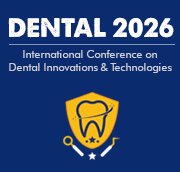Tooth Paste
Toothpaste is an essential component of dental hygiene, providing a range of benefits when it comes to keeping teeth clean and healthy. It acts as a detergent to remove plaque, a colourless, sticky film of bacteria that accumulates on the teeth and can cause cavities if left untreated. Plaque buildup can also lead to gum disease, so brushing with toothpaste is an effective way to diminish the risk of these oral health issues. The effectiveness of toothpaste is made possible by the variety of ingredients it contains. Though there is a range of toothpaste formulations available for different needs, basic toothpaste is composed of five key ingredients that target plaque-forming bacteria, fight bacteria that causes cavities, remove oral debris, aid in remineralisation and freshen breath. The main ingredient in toothpaste is called abrasive, typically silica or hydrated alumina. Abrasives act as a tiny scrubber to remove plaque, as they bind molecules of the surface of the tooth. The removal of plaque prevents the build-up of biofilm and also helps to remove surface staining. Fluoride is another essential component of toothpaste, as it helps to minimise the effects of acids produced by bacteria on teeth. Fluoride also replaces the minerals lost to acid attack, a process known as remineralisation. When bacteria digest sugars and other food particles, they form acids which attack tooth enamel. Adding fluoride to the mouth helps to neutralise this acid, bringing the pH of the oral cavity back to the ideal range to avoid further damage. Surfactants help to lift and remove food debris and bacteria after brushing. Surfactants reduce the surface tension of water, allowing particles that would normally stay attached to the teeth to be easily removed. This also gives toothpaste its frothy texture when it combines with saliva. Lastly, toothpaste contains flavourings such as mint or cinnamon to freshen breath and make brushing enjoyable. Flavourings are usually added in the form of oils, gums and sometimes even sugar to add sweetness. Brushing with toothpaste is the foundation of a good oral hygiene routine, as it helps to remove plaque, prevents cavities, freshens breath and helps to remineralise teeth. To maintain a healthy mouth, it is recommended that individuals brush with a proper technique, twice a day for two minutes each time. Additionally, flossing once a day and using an interdental cleaner between teeth can help to further keep oral cavity clean.

David Geoffrey Gillam
Queen Mary University of London, United Kingdom
Zvi Loewy
New York Medical College, United States
Khamis A Hassan
Global Dental Research Centre, Canada
Laurindo Moacir Sassi
Erasto Gaertner Hospital Cancer Center and Mackenzie Evangelical University Hospital, Brazil
Arnaldo Castellucci
Dr. Castellucci MD, DDS, Italy
Yasser Khaled
Marquette University, United States



Title : Efficacy of a biomin F toothpaste compared to conventional toothpastes in remineralisation and dentine hypersensitivity: An overview
David Geoffrey Gillam, Queen Mary University of London, United Kingdom
Title : Knowledge and attitudes of dental professionals in the evaluation of Molar Incisor Hypomineralisation (MIH): Awareness, diagnosis and treatment approaches: An overview
David Geoffrey Gillam, Queen Mary University of London, United Kingdom
Title : The coordinated triad of spatial temporal and biomechanical strategies managing the where when and how of shrinkage stress in bulk fill resin composite restorations
Khamis A Hassan, Global Dental Research Centre, Canada
Title : Dental treatment of 1500 young children under general anesthesia
Jaap Boehmer, Rijnstate Hospital, Netherlands
Title : Enhancing root canal success strategic use of orifice opener one step synthesis gels orifice barriers
Emmanuel Samson, Consultant Total Dental Care, India
Title : Importance of clinical pharmacokinetics of medications in the postoperative period of patients undergoing dental surgical procedures
Vitoldo Antonio Kozlowski Junior, Ponta Grossa State University, Brazil